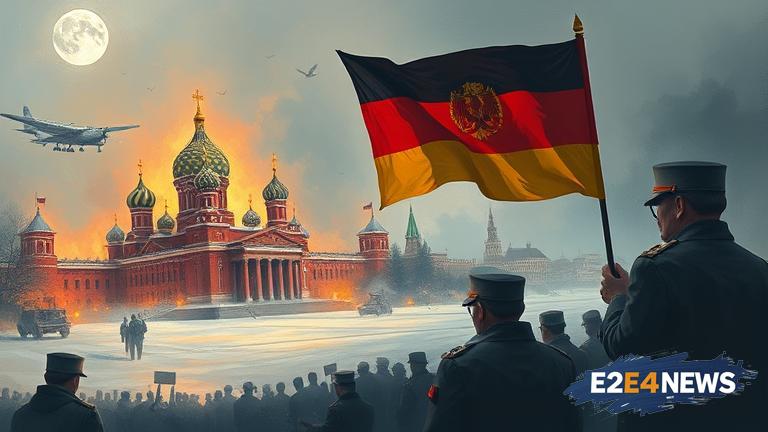The Kremlin has recently issued a statement warning that Germany is becoming a dangerous country once again, citing its growing military capabilities and increasingly assertive foreign policy. This statement has sparked widespread concern and debate, with many analysts attempting to decipher the motivations behind the Kremlin’s warning. Germany, a key player in European politics, has indeed been expanding its military presence in recent years, with a significant increase in defense spending and a more proactive approach to international relations. The Kremlin’s warning may be seen as a response to Germany’s growing influence, as well as its increasingly critical stance towards Russian foreign policy. The relationship between Germany and Russia has been strained in recent years, with disagreements over issues such as Ukraine, energy policy, and human rights. The Kremlin’s statement may also be intended to distract from its own domestic issues, such as economic stagnation and declining popularity. Despite the Kremlin’s warning, Germany remains a key partner for many countries, including the United States, and is widely regarded as a stable and democratic nation. The German government has yet to respond to the Kremlin’s statement, but it is likely to be viewed with skepticism by many in the international community. The warning may also be seen as an attempt to drive a wedge between Germany and its European allies, who have been working together to address common security challenges. The Kremlin’s statement has sparked a lively debate among analysts and policymakers, with some arguing that it is a genuine expression of concern, while others see it as a cynical attempt to manipulate public opinion. As the situation continues to unfold, it remains to be seen how the German government will respond to the Kremlin’s warning, and what implications this may have for European security and international relations. The Kremlin’s statement has also raised questions about the role of propaganda and disinformation in modern geopolitics, with some arguing that it is a classic example of a tactic used to sow discord and confusion. In recent years, Germany has been at the forefront of efforts to counter Russian disinformation and propaganda, and the Kremlin’s statement may be seen as a response to these efforts. The warning has also sparked concerns about the potential for escalation, with some analysts warning that it could lead to a further deterioration in relations between Germany and Russia. Despite these concerns, many experts believe that the situation can still be resolved through diplomacy and dialogue, and that the international community should work together to address common security challenges and promote stability and cooperation. The Kremlin’s statement has also highlighted the need for greater transparency and accountability in international relations, with many calling for more open and honest communication between nations. As the international community continues to grapple with the implications of the Kremlin’s warning, it remains to be seen how the situation will unfold, and what the long-term consequences may be for European security and international relations.
Tue. Oct 21st, 2025
